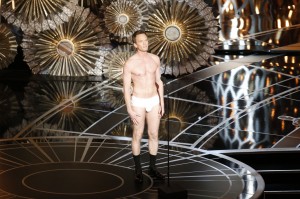 BY MONDAY NIGHT, the details of the best and worst Oscar gowns will have been picked clean like so many chicken bones. But Lupita Nyong’o certainly made a statement with a Calvin Klein gown assembled from 6,000 pearls. The ABC Red Carpet coverage went off mostly without incident under the auspices of Robin Roberts. Still, it was hard not to cringe when she asked Chris Kyle’s widow Tea what the real-life American sniper would have thought had he lived to see the reception of the film chronicling his life. Tea’s unwitting response: “He would be absolutely blown away.”
BY MONDAY NIGHT, the details of the best and worst Oscar gowns will have been picked clean like so many chicken bones. But Lupita Nyong’o certainly made a statement with a Calvin Klein gown assembled from 6,000 pearls. The ABC Red Carpet coverage went off mostly without incident under the auspices of Robin Roberts. Still, it was hard not to cringe when she asked Chris Kyle’s widow Tea what the real-life American sniper would have thought had he lived to see the reception of the film chronicling his life. Tea’s unwitting response: “He would be absolutely blown away.”
That amusing awkwardness aside, the parade of LGBT hosts and pundits on the carpet was the perfect (if also chirpy) on-ramp for the opening number by Hollywood’s favorite gay with a microphone, Neil Patrick Harris, who did not disappoint. He sang and danced rather sedately compared to his turn on Broadway as Hedwig. But what made his performance memorable was a combination of witty lyrics and shadow theatrics that harkened back to the interpretive silhouettes of Pilobolus from the 2007 Oscars. In a sexy tribute to Birdman, Harris later took the stage in—and, heroically, out of—his bathrobe. The Oscar stage hasn’t seen such a pec-tacular display since gay artist Robert Opel streaked the stage in 1974. Harris’ one-liners throughout the night were less consistent, but he kept the night moving, proving that the third leg of his hosting triple crown (after the Tonys and Emmys) was justified.
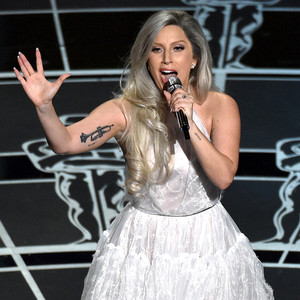
Perhaps the most bewildering moment of the night came when Terence Howard introduced three of the eight Best Picture nominees, getting choked up as he spoke of Alan Turing, the persecuted gay scientist whose tragic narrative was powerfully spotlighted by The Imitation Game. Whether he was actually that moved by Turing or by the third film on his list, Selma, was difficult to ascertain since he seemed equally discomposed through both introductions. Though oddly incongruous, his emotions seemed to foreshadow the shots of tear-stained faces in the audience after John Legend and Common’s riveting performance of the Selma anthem.
Later, Lady Gaga offered a charming tribute to The Sound of Music, but between her performance here and her duet at the Grammys with Tony Bennett, one wonders if her eccentric inner animal has been permanently domesticated by marriage, advancing years, or displacement by the more eccentric and lately more successful Sia.
But on the theme of eccentricity, arguably the most heroic moment of the night came when Graham Moore won for his adapted screenplay of The Imitation Game. In his speech, he 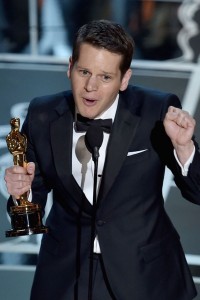 observed: “Alan Turing never got to stand on a stage like this and look out at all of these disconcertingly attractive faces, and I do. And that’s the most unfair thing I think I’ve ever heard. So in this brief time here, what I want to use it to do is to say this: When I was sixteen years old, I tried to kill myself, because I felt weird and I felt different and I felt like I did not belong, And now I’m standing here. And so I would like this moment to be for that kid out there who feels like she’s weird or she’s different or she doesn’t fit in anywhere: Yes, you do. I promise you do—stay weird, stay different, and when it’s your turn and you are standing on this stage, please pass the same message to the next person who comes along.”
observed: “Alan Turing never got to stand on a stage like this and look out at all of these disconcertingly attractive faces, and I do. And that’s the most unfair thing I think I’ve ever heard. So in this brief time here, what I want to use it to do is to say this: When I was sixteen years old, I tried to kill myself, because I felt weird and I felt different and I felt like I did not belong, And now I’m standing here. And so I would like this moment to be for that kid out there who feels like she’s weird or she’s different or she doesn’t fit in anywhere: Yes, you do. I promise you do—stay weird, stay different, and when it’s your turn and you are standing on this stage, please pass the same message to the next person who comes along.”
For all the browbeating that the Academy Awards received this year for its lack of diversity, the ceremony and the films themselves were a rather motley crew with a progressive agenda that climaxed with an emphatically feminist acceptance speech from Patricia Arquette for Boyhood, which was met with approving shouts from Meryl Streep, Jennifer Lopez, and others in the audience. The heterosexual two-parent family was either absent, fractured, or strongly critiqued in a majority of the films being honored, including Best Picture winner, Birdman.
The award show’s producers seemed eager to compensate for the sins of the Academy by loading the stage with black faces—Oprah Winfrey, Eddie Murphy, Lupita Nyong’o, Octavia Spencer, and Academy president, Cheryl Boone Isaacs, to name just a few. On the other hand, a white male protagonist was at the heart of seven of the eight Best Picture nominees. And while Foxcatcher and The Imitation Game featured gay subtexts, it will surely be the signal of progress when gayness finally becomes merely a quality of the major characters rather than their central conflict.
J. Ken Stuckey is a senior lecturer in English and media studies at Bentley University.


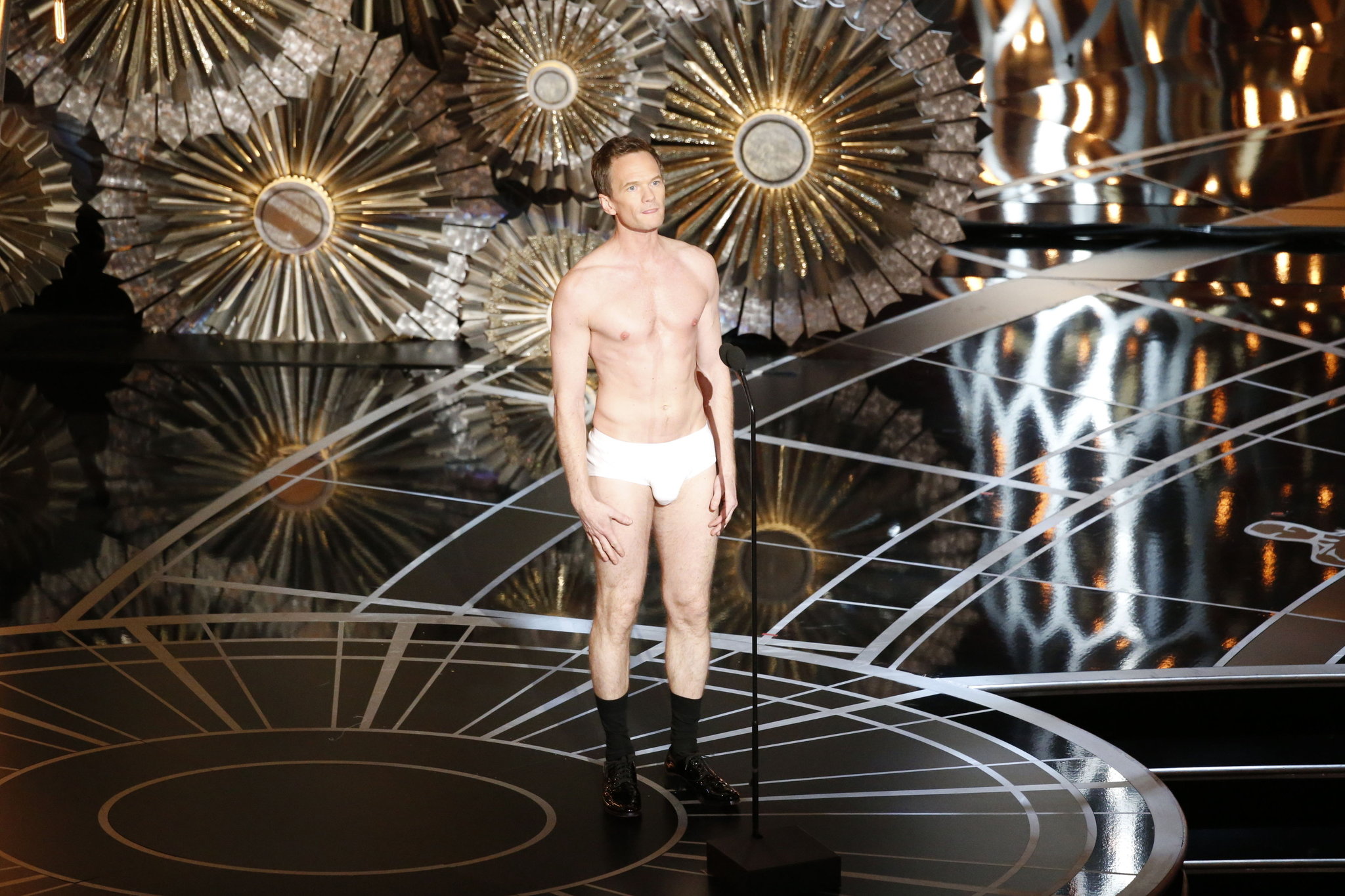


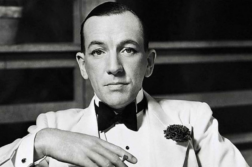
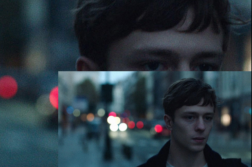
Discussion1 Comment
Any show which has the sublime Idris Elba for me to swoon over is a success!